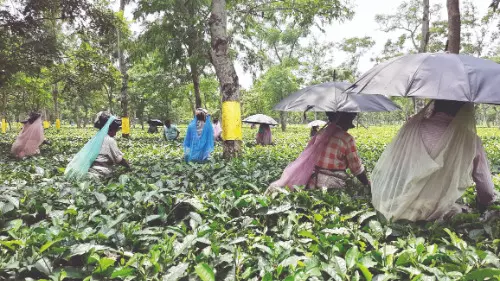‘At Rs 250, daily wages of tea garden workers in state higher than Assam’

Kolkata: State Labour minister Moloy Ghatak reiterated the state’s commitment to the welfare of the tea garden workers in the state and highlighted the additional benefits provided by the state government in comparison to the neighbouring state Assam which is ruled by the BJP.
Ghatak while delivering the Budget speech of the Labour department said that the daily wages of the tea garden workers in the state is presently Rs 250, higher than that of Assam (Barack Valley) where the daily wages is Rs 228. “Our Chief Minister Mamata Banerjee provides 35 kg rice to each family associated with tea cultivation completely free-of-cost while Assam’s BJP government provides 20 kg rice with the workers paying Rs 9 per kg for purchasing the same,” he added. There are 37600 tea garden workers in the state with 285 registered tea gardens. “We have constituted a minimum wages committee that has tea garden owners and representatives from the unions of tea gardens. They have sat for meetings 20 times but have not been able to arrive at a consensus on the wages,” the minister added.
The involvement of women workers in tea gardens has been increasing and in this backdrop, the state has come up with creche houses in 92 gardens. These creches look after the children of such women workers during the time of their work. 54 health centres have been set up in the state for the tea garden and construction workers. Ghatak further stated that in BJP-ruled state Tripura, the daily wages of the tea garden workers is Rs 176 per day. Talking about the benefits of the jute workers in the state, Ghatak said that the jute mill workers have been divided into four categories based on their expertise in work — unskilled, semi -skilled, skilled and highly skilled — and have been offering them salaries accordingly.
In line with the tea industry in Bengal, the department had initiated the process of providing jute mill workers with photo identity cards.



